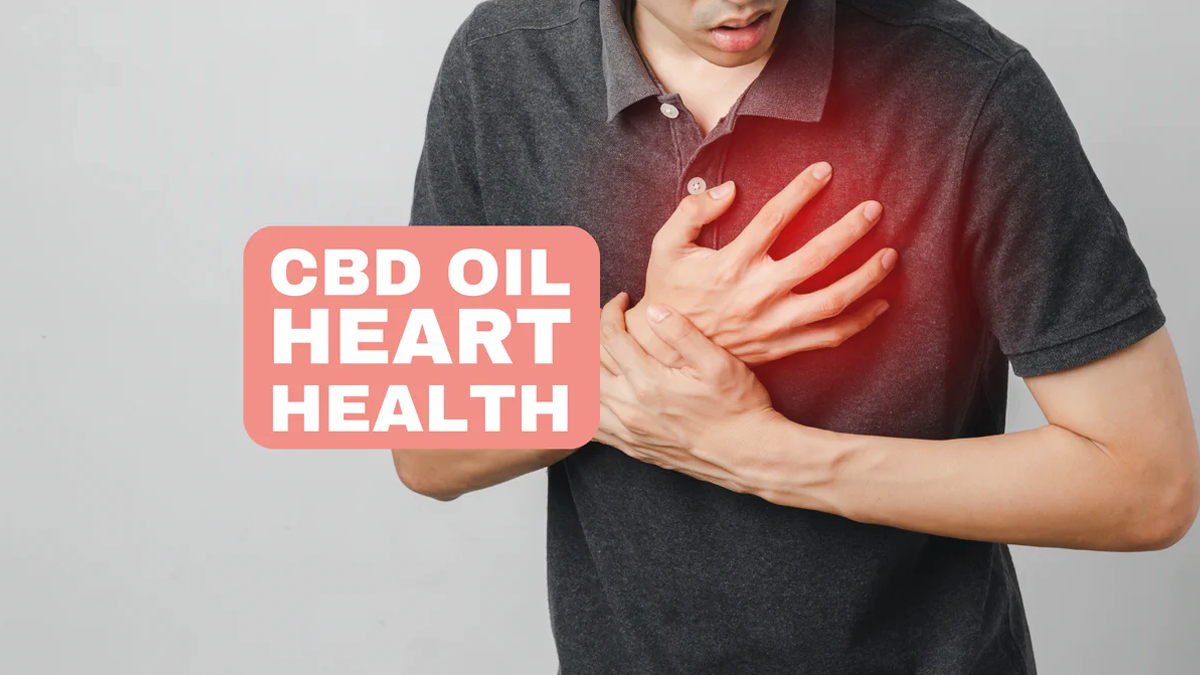CBD and Heart Health: Understanding its Cardiovascular Benefits

CBD and Heart Health Exploring the Cardiovascular Benefits of a Natural Solution. short for cannabidiol, has gained significant attention for its potential health benefits. One area where CBD has shown promise is in promoting heart health. Research into the cardiovascular benefits of CBD has opened up new avenues of understanding, suggesting that this non-psychoactive compound found in the cannabis plant could play a role in maintaining a healthy heart. In this article, we’ll delve into the intriguing relationship between CBD and heart health, exploring how it may positively impact cardiovascular function and overall well-being.
Explore the Contents
- 1 The Basics of CBD and its Mechanism of Action
- 2 Reducing High Blood Pressure
- 3 Anti-Inflammatory Properties
- 4 Managing Stress and Anxiety
- 5 Antioxidant Effects and Cell Health
- 6 Impact on Arrhythmias
- 7 Cholesterol Regulation
- 8 Interaction with Medications
- 9 Dosage and Administration
- 10 Potential Side Effects of CBD and Heart Health
- 11 Future Research and Implications
- 12 Conclusion (Cbd and heart health)
- 13 FAQs
The Basics of CBD and its Mechanism of Action
CBD is a naturally occurring compound extracted from the hemp plant. It interacts with the endocannabinoid system (ECS) in the human body, which regulates various physiological processes, including immune response, pain perception, and mood. By modulating the ECS, CBD has been suggested to have anti-inflammatory and antioxidant effects, both of which are crucial for heart health.
Reducing High Blood Pressure
One of the key factors in cardiovascular health is maintaining healthy blood pressure levels. Studies indicate that CBD may help reduce high blood pressure by relaxing blood vessels and promoting vasodilation. This could potentially contribute to lower blood pressure and a reduced risk of conditions like hypertension.
Anti-Inflammatory Properties
Chronic inflammation is a common underlying factor in many heart-related conditions. CBD’s anti-inflammatory properties could play a role in preventing damage to blood vessels and reducing the risk of atherosclerosis. By targeting inflammation, CBD might indirectly support cbd and heart health
Managing Stress and Anxiety

Stress and anxiety can have detrimental effects on the cardiovascular system. CBD’s anxiolytic properties could help manage stress, potentially lowering the risk of heart disease. By promoting a sense of calmness, CBD may contribute to overall heart health.
Antioxidant Effects and Cell Health
Oxidative stress can damage cells and tissues, contributing to heart diseases. CBD’s antioxidant effects might help neutralize free radicals, reducing oxidative stress and supporting cell health. This could have a positive impact on the heart’s function and longevity.
Impact on Arrhythmias

Arrhythmias are irregular heart rhythms that can lead to serious complications. While more research is needed, initial studies suggest that CBD might have a role in regulating heart rhythms. This could potentially benefit individuals prone to arrhythmias.
Cholesterol Regulation
Maintaining healthy cholesterol levels is vital for heart health. Some studies suggest that CBD could impact cholesterol metabolism, potentially helping to regulate cholesterol levels and reduce the risk of heart disease.
Interaction with Medications
Before incorporating CBD into your routine, it’s crucial to consider potential interactions with medications. CBD can inhibit certain enzymes responsible for drug metabolism, affecting how medications are processed in the body. Consultation with a healthcare professional is essential for those on medication.
Dosage and Administration
The appropriate CBD dosage can vary based on factors such as body weight, metabolism, and the desired effects. Starting with a low dose and gradually increasing it allows individuals to find their optimal dosage. CBD is available in various forms, including oils, capsules, and topical creams.
Potential Side Effects of CBD and Heart Health
While generally well-tolerated, CBD may cause some side effects in some individuals, such as dry mouth, diarrhea, or changes in appetite. These effects are usually mild and temporary. It’s important to start with a low dose and monitor how your body responds.
Future Research and Implications
Research into CBD’s impact on heart health is still in its early stages. Continued studies will provide a deeper understanding of how CBD interacts with the cardiovascular system and its potential long-term benefits.
Conclusion (Cbd and heart health)
In conclusion, the relationship between CBD and heart health is a promising area of study. While further research is needed to fully understand the extent of CBD’s cardiovascular benefits, current findings suggest that its anti-inflammatory, antioxidant, and stress-reducing properties could contribute to a healthier heart. As always, it’s important to consult with a medical professional before making any significant changes to your health regimen.
Read More: CBD and Mental Health: Examining its Potential for Depression
FAQs
Is CBD legal?
Yes, CBD derived from hemp with less than 0.3% THC is legal in many regions. However, laws vary, so it’s essential to research your local regulations.
Can CBD get you high?
No, CBD is non-psychoactive and does not produce a “high” feeling like THC, another compound in cannabis.
How quickly can I expect to see results in heart health?
Individual responses to CBD vary. Some people might experience noticeable effects relatively quickly, while others might take longer.
Can I take CBD alongside my heart medication?
It’s crucial to consult your healthcare provider before combining CBD with any medications to prevent potential interactions.
Is CBD suitable for everyone?
While generally well-tolerated, CBD might not be suitable for pregnant or breastfeeding individuals. Consulting a doctor is recommended before use.





